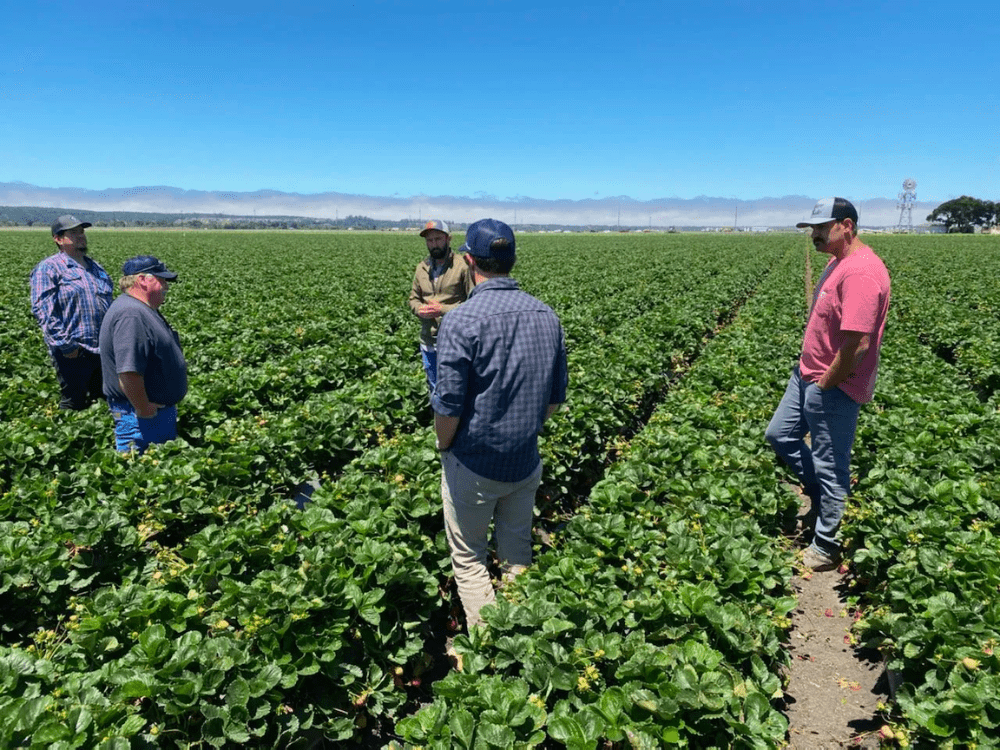US-based nanotechnology company Aqua-Yield has closed a $23 million Series A round. The raise will support growth of its nanoliquid products that mix with agricultural inputs like fertilizers and pesticides to boost plant health and protection. Aqua-Yield says farmers can reduce their use of synthetic fertilizer and crop protection inputs by 25%-50%, which is significant given the inflationary environment, particularly for fertilizer right now.
- The automotive-cum-diversified investment business Larry H. Miller Company led the round, joined by Penny Newman Grain Company and consumer-focused private equity firm JH Partners.
How it works:
Aqua-Yield’s “nanoliquid” technology increases plants’ absorption of other liquid inputs such as fertilizers, herbicides and pesticides. The company says its products can help farmers reduce the quantity of inputs they have to use on crops without compromising yields.
- Nanoliquids are not chemicals or biologicals, and they are not meant to replace those options. Rather, nanoliquids are mixed with inputs to encapsulate them and make them more available to the plant. Importantly, these nanoliquids can deliver the inputs to the plants quickly, so that absorption happens before the inputs are lost to the surrounding environment.
- Nanoparticles protect the molecules found in inputs from environmental losses and bring those molecules into the plant cells before releasing them. The result is a more efficient uptake of the input; Aqua-Yield says farmers can reduce their synthetic fertilizer and crop protection inputs by 25%-50%.
- Aqua-Yield’s concentrated liquid products can be added to most spray mixtures used by farmers for crop protection and soil and plant health.
- Because the nanoliquids are designed to work with existing input products, farmers and growers can introduce the technology into their operations without having to change much of their processes.
- Aqua-Yield currently has 16 products that work with most input liquids out there, and on a variety of crops and farm sizes. Products are currently used on 4 million acres of farms across more than nine countries.
Why it matters:
“Stretch your 2022 input dollars” is the current tagline on Aqua-Yield’s website. It’s also a top priority for farmers around the globe right now, thanks to skyrocketing input prices. For example, a recent Rabobank survey found that year-over-year potash prices are currently “an indicative 30% higher at the wholesale level today, while phosphates are 20%-25% up over the same period.” Fertilizers typically include these inputs.
Elsewhere, Purdue University’s Center for Commercial Agriculture has found that high input costs are a “top concern” for nearly half of US farmers, and that 39% of these expect more cost increases in 2023.
These cost issues come alongside environmental concerns about the impact of chemical-based products on human and planetary health.
As a result, interest in alternative products, from biological inputs and gene-editing technologies to leveraging extremophiles, is on the rise.
Nanotechnology is increasingly seen as a promising solution for making modern agriculture more resilient by boosting the efficacy of existing pest and disease management products as well as increasing nutrient uptake in plants. Relative to other crop health and protection options out there, nanotech is fairly new in agriculture, though it has existed for some time in industries like healthcare and pharmaceuticals.
Canada’s Vive Crop Protection, which just raised a $26 million Series C round, is another company boosting crop inputs with nanotech.
“Nanoliquid technology enables growers to stretch their ag inputs,” Aqua-Yield CEO and co-founder Clark T. Bell said in a statement. “This has been key to growth as the agribusiness industry faces supply chain struggles, product availability, and the current environmental strains that will continue to play a key role in the future.”
He added that his company has “doubled in size year-over-year” since the start of the pandemic, and has conducted more than 750 field trials resulting in a 3:1 average return on investment for growers.
The Series A funding will largely go towards expanding the company’s commercial team globally and establishing “a strategic international footprint.”





